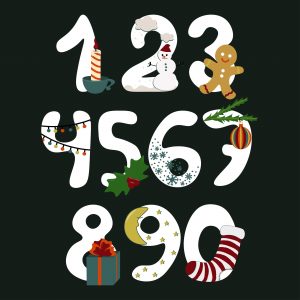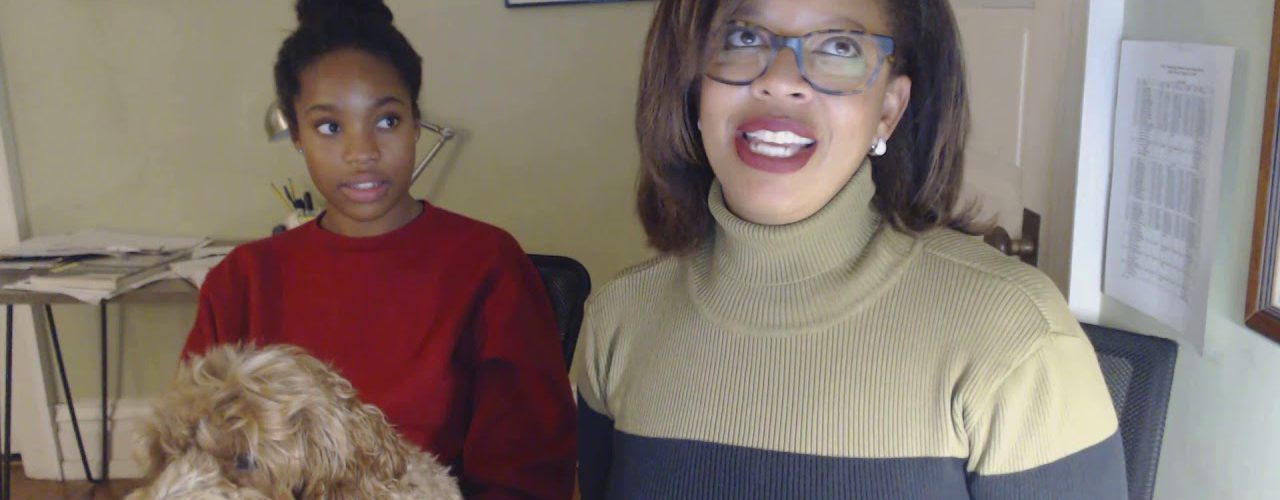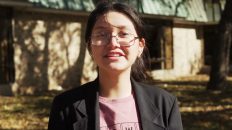

It’s the holiday season and your kids are home from school! It’s tempting to use technology as a babysitter, but with Dinner Table Math Hacks, you and your kids can enjoy technology-free activities that also build math confidence!
Dinner Table Math Hacks include games that are easy to learn, are engaging and fun. I’ve played these games with my three children over the years, and we always end up with lots of laughs.
The first game – Race to 21 – is a 2-person rapid-fire game of addition. The first person to 21 wins. It’s that simple. Here’s how it works:
- The first player starts with the number 1, 2 or 3 (for example the 1st players says “2”)
- The second player adds to that number using 1, 2 or 3 (for example, the 2nd player says “2 + 3 = 5” and so on….)
- The first person to get to 21 first wins.
Here’s an example of how the game is played. But, there’s a trick to winning the game every time. As a parent, you can learn the trick very quickly and drive your children crazy trying to figure it out why you keep winning! This game is great because it can be played with children of all ages.
Another game is “Alphabet Math.” When my children were young, I used it as a tool to get them to do math while learning their sight words. If you have a child in kindergarten or first grade, you can do the same thing. This game takes sight words and uses math to figure out their value. Here’s the premise. If every letter is given a value (A = 1 B = 2, C=3… Z = 26) what are the values of your child’s sight words? Using my “Alphabet Decoder,” you and your child can choose a word, find the value for each letter and then find the sum of the letters in the word. For example, the word “be” is worth 7 because the letter “b” equals 2 and“e” equals 5 and the sum is 7.
You can challenge older children to find words that add up to exactly 100. These words are called “dollar words.” The “Dollar Word” game can keep children occupied for hours. I was once visiting friends out of town and told their children that if they could find a “dollar word” before I left for the airport, I would give them $5.00. They spent the next two hours doing math on scratch paper trying to find a word, and chased my taxi down the driveway shouting words. When I returned home I received a message on my voicemail with a “Dollar word” they had discovered. These children continued to work on this activity long after I left and long after the $5.00 prize was lost!
Finally, older children can do this alphabet math activity to practice their division facts. To get more tips on how to use the Alphabet Decoders check out this video. You can also click here for a list of Dollar Words.
ABOUT ANGELA McIVER, PhD
Angela McIver is founder of Dinner TableMath® and Trapezium Math Club,® an after-school and summer camp program for elementary students in the Philadelphia area. She also works with elementary schools to implement engaging math in the classroom.Angela is the mother of three children (one in middle school and two in high school) and is thankful she had an opportunity to positively impact their math education as young children. McIver completed her PhD at the University of Pennsylvania’s Graduate School of Education. Her dissertation, Understanding the Numerical Reasoning of Middle School Students, focused on understanding why so many students struggle with math after leaving elementary school.
For more information about Dinner Table Math, visit: http://dinnertablemath.com/
For more information about Trapezium Math Club, visit: http://trapeziummathclub.com/








7 comments